Maternal Child Health Track
Track Leader: Christina Shenko, MD
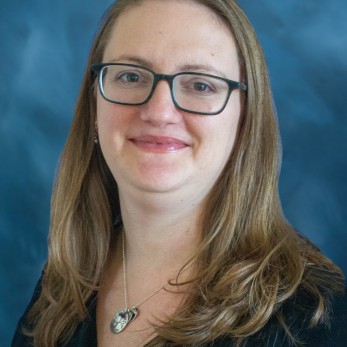
This track is designed to meet the needs of residents desiring an enriched educational experience in Maternal/Child health, including those planning to include vaginal deliveries and newborn care in their future practice. We do not provide training as primary surgeon at Cesarean birth.
Advanced clinical experiences will be offered both at Middlesex Health and in collaboration with other institutions such as UCONN, Backus Hospital and others. In addition to advanced obstetrical care, residents in this track have the opportunity to develop skills in the stabilization of newborns, care of sick newborns and breastfeeding support.
Educational Objectives:
By the end of the track the resident will be able to:
- provide high-quality antenatal, intrapartum and post-partum care for women with uncomplicated pregnancies.
- identify and manage complications of pregnancy, labor and delivery, when necessary in collaboration with appropriate specialists.
- perform limited obstetrical ultrasound evaluations.
- perform effective resuscitation and stabilization of the newborn in distress.
- deliver patient-centered, culturally-sensitive maternity care to a diverse group of patients.
- evaluate quality measures of obstetrical care and track outcomes.
Core Curricular Components:
- Additional experience with intrapartum obstetrics including management of high risk patients
- Additional management of continuity patients in office practice and at the Community Health Center
- Training in resuscitation at deliveries and management of Level II Nursery patients
- Participation in scholarly projects involving maternal-child health
- Training courses such as ALSO, NRP, and STABLE.
- Mentored supervision and teaching of medical students and junior residents
Participants in this track will travel to other locations for some experiences.
Palliative Medicine & Geriatrics
Track Leader: Otto Weis, M.D.
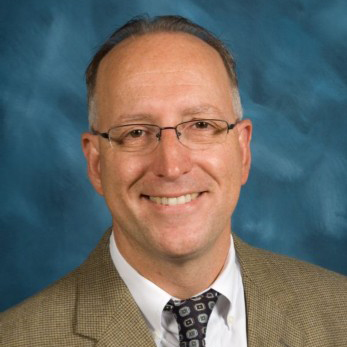
This track is designed to provide additional training for residents interested in immersion experiences in Palliative Medicine and Geriatrics. The residents will be able to individualize their training by selecting the amount of time they would prefer to spend in the Palliative Medicine and Geriatric portions of this track. In addition, there will be a variety of settings in which to further their Palliative Medicine training, as well as their Geriatric training, depending on the resident's interest and need.
Educational Objectives:
By the end of the track the resident will be able to:
- provide exceptional clinical care to the older adult patient.
- be competent with the knowledge and skills needed by future family physicians to provide optimal care of the geriatric patient.
- provide exceptional and compassionate care to patients at the end of life.
- engage in and support a multi-disciplinary approach to the geriatric and palliative care patient.
- provide advocacy for geriatric care and end of life care in our current health care delivery system.
Core Curricular Components:
- A Core Clinical Curriculum in Palliative Medicine will utilize the Middlesex Health Hospice unit as a prime site. Additional experiences will be available through Middlesex Health Care at Home and Hartford Hospital's Palliative Medicine Team. Clinical geriatric experiences will be at Portland Care and Rehabilitation and Apple Rehabilitation working with local medical directors. Didactic and clinical experiences will be available through the Travelers Center for Aging in Hartford, CT as well as the Dorothy Adler Geriatric Center at Yale. Additional sites may include other Connecticut tertiary nursing home settings including the Hebrew Home in West Hartford. Additional outpatient experiences in geriatrics will be available through UConn Health Center, Middlesex Health Homecare, and various PM&R settings and geriatric-psychiatric experiences at Middlesex Health and local skilled nursing facilities.
- This track will utilize active patient management, bedside teaching, multi-disciplinary groups, small group discussions and computer assisted learning modules.
- Residents may chose to be active members of the the Middlesex Health Bioethics Committee, Pain Management Service and Geriatric Sub-committee
- Involvement in long-term pathway projects on pain management and end of life care and geriatric assessment are available.
Global & Community Health
Track Leader: Cliff O'Callahan, M.D., Ph.D.

This track is designed to meet the needs of residents planning to incorporate local and international global health activities into their later academic and/or practice careers.
This track is customized for each particular resident's need based on a period of reflection and discussion in the first elective block so that each later elective is designed for their unique needs. Some will concentrate on domestic underserved, immigrant and refugee populations, disaster response, and travel medicine while others will place more emphasis on international preparedness with an emphasis on creating empowerment and competence among our partners.
Clinical immersion experiences will be an integral part of this track, primarily in the last two years and once the candidate has completed all of the in-country programmatic objectives. Our Sayaxche Guatemala Partnership allows one to analyze systems of care within Ministry of Health, as well as community health worker settings. The Rwanda Partnership experience at the main teaching hospital in Kigali is more of a hands-on intense hospital-based rotation.
Educational Objectives
By the end of the track the resident will be able to:
- provide high quality and ethically sound medical care in any medically challenged region.
- be cognizant of the resources available to those working in global health settings, local or international.
- analyze and evaluate programs, NGOs, and resources for their utility in providing culturally competent quality health care.
- practice, if desired, and teach involvement in truly collaborative and ethically sound long-term partnerships with communities of need with the intent to improve health.
- participate in short-term humanitarian or relief operations using advanced clinical and non-clinical skills pertinent to the situation in an ethically sound manner.
Core Curricular Components
- Multimedia self-paced curriculum on basic and tropical diseases.
- Longitudinal discussion on global health issues.
- Time to visit, interview, and possibly work with domestic service providers of care to the US underserved—Indian Health Service, Community Health Center (e.g., homeless outreach work), IRIS refugee center in New Haven, etc.
- Opportunity to participate in a variety of intensive courses that are on-line or live (disaster management, tropical medicine, or advocacy).
- Opportunity to participate in an intensive immersion experience through our partner NGO, Concern America, to Guatemala and/or to our University of Rwanda Partnership site in the main teaching hospital in Kigali.
In March 2017, former family medicine resident Dr. April Diep was interviewed alongside Dr. Cliff O`Callahan about her experience working in Rwanda as part of the Global & Community Health track.
More Information
For more detailed information, see the following documents:
MHFP Global Health Competencies
Global Community Track Description
Integrative Medicine
Track Leader: Justin Caskey, D.O.
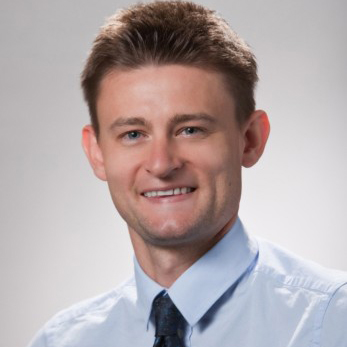
This track is designed to meet the needs of residents seeking to incorporate the philosophies, techniques and a variety of therapeutic modalities into their future practice.
The opportunity exists to complete the Fellowship in Integrative Medicine through the Program in Integrative Medicine at the University of Arizona.
Educational Objectives:
By the end of the track the resident will be able to:
- evaluate and recommend a variety of approaches to disease prevention and disease management in addition to allopathic medicine, including neutraceuticals, herbal therapies, manipulative therapies, homeopathy, traditional therapies, energy therapies and spirituality.
- integrate conventional and alternative modalities effectively.
- identify and utilize competent community resources offering expert care across the spectrum of complementary therapies.
- focus in depth on a limited number of complementary modalities.
- interpret and evaluate evolving evidence to support or not support complementary strategies and recommendations.
- provide holistic, comprehensive, patient focused care.
- learn strategies for self-care.
Core Curricular Components:
- Management of continuity patients in the office practice
- Participation in the Integrative Medicine Consultation Service
- Work with a variety of alternative health providers in and out of the Middletown area
- Participation in scholarly projects involving Integrative Medicine
- Training Programs including the University of Arizona Program in Integrative Medicine
- Mentored supervision and teaching of medical students and fellow residents
Participants in this track may travel to other locations for some experiences.
Academic & Leadership
Track Leader: John Williams, M.D., M.S.M.ED.
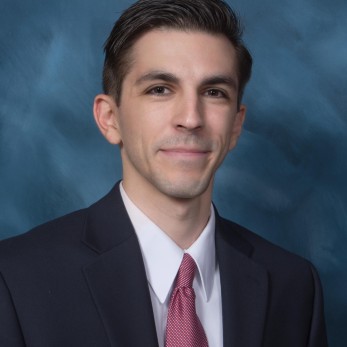
This track is designed to meet the needs of residents planning to incorporate a substantial amount of teaching and leadership in their future career. For those planning a career in academic medicine it will serve the role of a faculty development fellowship.
This track is offered in conjunction with Lake Erie College of Osteopathic Medicine (LECOM). LECOM is one of the nation's most innovative medical schools and is deeply committed to academic skill development.
Educational Objectives:
By the end of the track the resident will be able to:
- provide skilled feedback and evaluation.
- develop high quality educational objectives and curricular plans.
- deliver effective clinical precepting and small and large group teaching.
- understand the fundamentals of budgets and the financing of medical education.
- lead an efficient meeting.
- apply the fundamentals of leadership.
- manage a project longitudinally.
Core curricular components:
- A core curriculum focusing on academic skills that will include on campus periods at LECOM, small group seminars at Middlesex Health, and web-based exercises
- Feedback
- Curriculum development
- Leadership
- Budgets and financing
- Teaching experiences mentored by our senior faculty
- Outpatient office precepting
- Inpatient attending on the Family Medicine Service
- Didactic and small group teaching
- A longitudinal curriculum development project
- Mentored leadership opportunities
Residents who successfully complete this track will receive a Masters of Medical Education degree from LECOM.
Behavioral Medicine
Track Leader: Victoria Lingswiler, Ph.D.
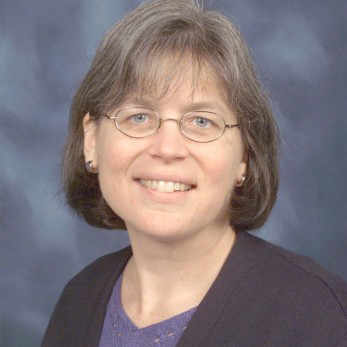
This track will enhance residents' Behavioral Medicine skills through intensive experiences in family medicine and mental health settings, depending upon individual interest and need.
Educational Objectives
The resident will define their personal objectives, such as developing the ability to:
- practice within a mind-body conceptual framework.
- assist patients in making behavioral and lifestyle changes using motivational interviewing, identify and manage issues with compliance/adherence.
- identify and address the emotional aspects of medical illness and somatic preoccupation.
- conduct supportive counseling, utilize cognitive-behavioral techniques and provide family therapy.
- effectively manage risk situations including acute suicidal, homicidal and psychotic states.
- assess normal vs. pathological development in children and adolescents.
- address biological, psychological and social issues that are impacting negatively on a child's development and develop a plan of care (including school interventions).
- provide advanced management of childhood psychiatric disorders including complicated ADHD, and mood disorders.
- identify medical, psychological, social and legal factors associated with adult psychiatric disabilities and formulate comprehensive treatment approaches.
- provide advanced management of adult psychiatric disorders including anxiety and depression, offer maintenance management of stable bipolar disorder and schizophrenia, evaluate and treat eating disorders and common sexual problems.
- utilize evidence-based screening and assessment for substance-related disorders.
- engage in primary care management of chronic substance use disorders including detoxification, pharmacologic management of craving, and appropriate referral for psychotherapeutic intervention or higher level of care.
- provide non-interventional chronic pain management, including evaluation and appropriate prescribing of narcotics with adjustments for patients with greater potential for opiate dependence.
Core Curricular Components:
The Behavioral Science Track will utilize Middlesex Health's Family Advocacy Program, Center for Behavioral Health, psychiatric day treatment programs and inpatient unit, as well as the Crisis Assessment and Triage Service. Additionally, residents may obtain training in a variety of mental health programs in central Connecticut including Rushford Center, Connecticut Valley Hospital, Harford Hospital, Yale New Haven Dispensaries, Advanced Diagnostics Pain Center in New Haven, CT Spine Institute, CT Center for ADHD and Attention Disorders, Walden Behavioral Care, and The Institute of Living Eating Disorders Program.
Hospitalist
Track Leader: Yadira Acevedo, M.D.
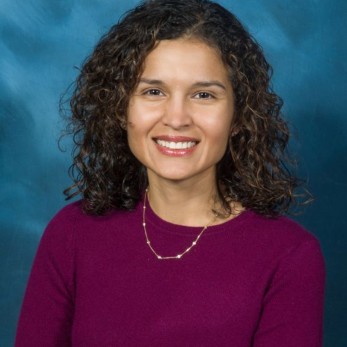
This track is designed to provide for additional training for residents interested in immersion experiences in Hospital Medicine and preparation for Recognition of Focused Practice in Hospital Medicine through the ABFM.
Educational Objectives:
By the end of the track the resident will be able to:
- Be competent with the knowledge, diagnostic reasoning, and clinical judgment skills expected of a hospitalist
- Be knowledgeable of the systems issues in Hospital Medicine involving quality improvement, practice guidelines, and patient safety
- Gain skill in procedures commonly performed in the inpatient setting
Core Curricular Components
Middlesex Health will be the prime educational site. Experiences will focus on inpatient medicine, transitions of care management, and consultative collaboration. Committee involvement will include the Quality and Patient Safety committee, the Rapid Response Team/Resuscitation committee, Peer Review committee, and Infection Prevention committee. Residents will also work closely with Inpatient Hospital Medicine and Family Medicine hospital leadership.
Lifestyle Medicine Track
Track Leader: Michael Kalinowski, MD
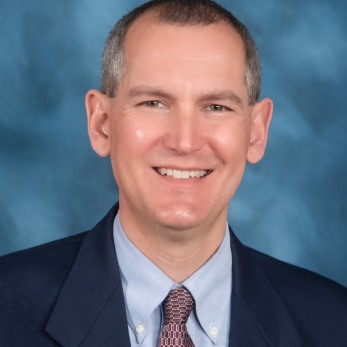
This track is designed to provide interested residents with personalized training in the discipline of Lifestyle Medicine and to prepare them to achieve board certification in this field through the ABLM. Lifestyle Medicine is the use of evidence-based lifestyle therapeutic intervention—including a whole-food, plant-predominant eating pattern, regular physical activity, restorative sleep, stress management, avoidance of risky substances and positive social connection—as a primary modality to prevent, treat and often reverse chronic disease.
Educational Objectives:
By the end of the track the resident will be able to:
Complete all of the requirements of the Lifestyle Medicine Residency Curriculum (LMRC)
- 40 hours of didactic lectures covering the scope and content of LM
- 60 hours of independent application with experiential learning
- 400 clinical encounters utilizing an LM approach
- 20 hours of participation in an Intensive Therapeutic Lifestyle Change Program (ITLC)
- 20 hours of experience leading or supporting an office based Group Visit Model
Educational topics to include:
- Introduction to Lifestyle Medicine
- Role of Physician Health
- Nutrition Science, Assessment, and Prescription
- Physical Activity Science and Prescription
- Sleep Health Science and Interventions
- Managing Tobacco Cessation and other Substance Exposures
- Fundamentals of Health Behavior Change
- Key Clinical Processes in Lifestyle Medicine
- Emotional and Mental Well-Being
- The Role of Connectedness and Positive Psychology
Core Curricular Components:
- Participation in all aspects of the LMRC
- Providing Lifestyle Medicine consultations to patients of the Residency Program and Health System
- Collaboration with multidisciplinary LM providers in the health system and the community
- Serving as a teacher and mentor to other residents and medical students
- Engage and lead in the topic of Provider Wellness
- Gain expertise in the techniques of Motivational Interviewing and Behavioral Psychology
- Participate in Community Medicine activities designed to promote healthy lifestyle
- Development of a Culinary Medicine model for patients
- Ideally, the resident will attend the American College of Lifestyle Medicine (ACLM) annual conference
Sports Medicine Track
Track Leader: Ana Garcia, D.O.
This track is designed to meet the needs of residents desiring an enriched educational experience in Sports Medicine, including those planning to care for athletes at highschool and college levels as well as strengthening their Musculoskeletal system assessment and treatment skills. While not a substitute for a Sports Medicine Fellowship, this track is perfect for residents seeking an enhanced skill set.
Advanced clinical experiences will be offered at Middlesex Health, Wesleyan University, Ansonia High School and in collaboration with other institutions such as UCONN, Hartford Wolf Pack, and others. In addition to caring for the athlete, residents in this track have the opportunity to develop skills in MSK ultrasound guided procedures, MSK radiology, and mass event coverage.
Educational Objectives:
By the end of the track the resident will be able to:
- Provide the necessary training to develop competencies in all basic sports medicine skills including comprehensive assessment, physical exam skills, and basic office procedures including musculoskeletal (MSK) ultrasound guided injections
- Provide high-quality care for athletes in a training room setting
- Exposure to event coverage including sidelines of colleges and schools, NCAA tournaments, and mass events
- Identify and manage musculoskeletal complaints and injuries
- Develop a strong sports medicine knowledge base and the ability to critically read and analyze the medical literature
- Attend national and local Sport Medicine conference conferences
Core Curricular Components:
- Longitudinal training room experience at Wesleyan University
- Sideline coverage and NCAA tournament coverage
- Provide full spectrum care for the active community at the sports medicine clinic and in continuity clinic
- Be able to provide competent MSK medicine to communities and common MSK complaints
- Ultrasound Curriculum with hands on experience
- Leading Didactic session about various sport medicine topics
Participants in this track can travel to other locations for experiences which have included but not limited to:
- UCONN Primary Care Sports Medicine
- Maine Med Primary Care Sports Medicine
- Killington Ski Mountain
Personalized
Track Leader: Each resident's Faculty Advisor
This track is designed to meet the needs of the resident who wishes to develop a focused individualized educational experience. The personalized track allows the resident the opportunity to combine aspects of two existing tracks to develop a unique area of study.
